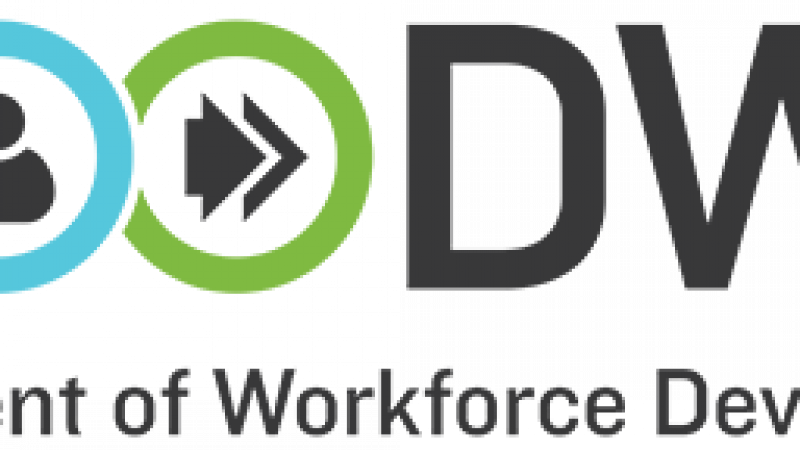Lawmakers and trade groups are offering solutions to the Unemployment Insurance backlog after former Department of Workforce Development Secretary Caleb Frostman’s resignation.
Gov. Tony Evers asked for and received Frostman’s resignation Friday after seeing no significant progress on the backlog despite the state nearly tripling the number of people working to take and process claims. Monday’s update from the agency showed over 94,000 people were still awaiting checks.
Terry Hayden, president of the Wisconsin Pipe Trades Association and an employee representative of the Unemployment Insurance Advisory Council, said that while the department’s effort to bring in more bodies has “reduced the backlog significantly,” there is streamlining that can be done.
While still following the laws of program integrity, Hayden suggested further relaxing requirements, like the department did with the work search policy.
“It would potentially leave more people eligible for benefits but it would also streamline — there would be less claims that have to go through adjudication,” he said.
Hayden said in an interview that his association has had members with delayed benefits. An example of delay has been with Wisconsin workers who live in other states. Because of that out-of-state address, more adjudication work has to be done at the department.
“My hope is that the department will continue to work at streamlining the process,” Hayden said. “But I don’t know that there’s an easy solution. It’s certainly not acceptable that we have a backlog of claims.”
Rep. John Nygren said that what ultimately hurt unemployed Wisconsinites was Evers’ comments and lack of action to address the UI backlog.
“My colleagues and I have made several suggestions over the last couple of months to reduce the UI backlog,” said the Marinette Republican. “Unfortunately, Gov. Evers referred to these suggestions as a ‘political stunt.'”
Nygren told WisBusiness.com that before the guv shut down the economy in March, he should have had a plan for how to help those who were going to lose their jobs due to the order, including activating the National Guard to help with UI claims and extending call center hours to seven days a week for at least 12 hours per day.
“In August, DWD told my office they stopped hiring additional adjudicators,” he said. “Knowing that the adjudication process is creating the backlog, DWD should have continued hiring adjudicators instead of stopping at an arbitrary number of adjudicators.”
Nygren noted that he had also said Evers should have used federal pandemic funds to provide forgivable loans to those waiting for their checks and had called for the administration to evaluate the UI process.
“Unfortunately, much like unemployed Wisconsinites, Gov. Evers has not listened to us,” he said.
Sen. Chris Kapenga, R-Delafield, said in an interview that the first thing DWD needs to do right now is find the bottleneck and put resources towards it, which he said he assumes is in the adjudication process contacting employers.
“I’m going on assumptions here because I have not seen the inside of what they’re doing at DWD,” Kapenga said. “We’ve had around 100,000 claims for months now that’s in the backlog queue and nothing is getting reduced. I don’t understand what they’re doing or not doing. That’s the frustrating part about it is that there’s no progress being made.”
He said that he can’t see how stopping initial claims for two weeks, which California has done, would solve the backlog since Wisconsin has already had “months and months” of time to catch up.
“I don’t see that as a real fix at this point because I don’t know what they’re doing,” Kapenga said. “The problems at DWD go much deeper than Caleb Frostman.”
Dennis Delie, an employee representative of the Unemployment Insurance Advisory Council, argued that a lot of the responsibility falls on the Legislature to improve the Department of Workforce Development’s UI system.
DWD’s software system called COBOL, which stands for Common Business Oriented Language, is 50-years-old.
“There’s a lot of people out there that waited a long time. I’m not so sure it’s testament to the people who were running the department,” said Delie, who serves as secretary-treasurer at Wisconsin State AFL-CIO.
“I understand that the buck stops somewhere, and the citizens of Wisconsin deserve a system that is efficient and gets those benefits out on a timely basis,” he said. “But I think there’s a lot of shared responsibility in how that happens and it doesn’t all fall on the people in the department, a lot of it falls on our Legislature and there’s plenty of blame to go around.”
Delie attributes the backlog to DWD’s “antiquated system” which when combined with such an influx of claims, created a “perfect storm.” He also noted the waiting period and general rules and regulations surrounding eligibility that “although necessary,” are “complications” that slow down claim resolution.
“I really think we need an influx of investment into that whole system and department to upgrade that and bring that to a point where it can handle this sort of emergency,” he said. “It could be a health emergency again; it could be any kind of financial downturn that could trigger this sort of spike in claims. We need an updated system.”
-By Stephanie Hoff
WisBusiness.com




